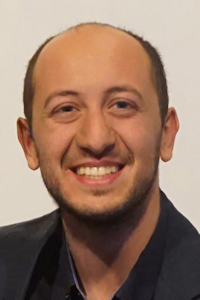What is the Leverhulme International Professorship in Neuroeconomics Lab:
The Leverhulme International Professorship in Neuroeconomics Lab, or more simply the LIPNE Lab, is a multi-disciplined research team at the University of Cambridge Faculty of Economics undertaking novel research in the study of neuroeconomics.
Founded in 2022 after Professor Peter Bossaerts received the Leverhulme International Professorship Award in 2020, the LIPNE Lab features a diverse team of experimental economists, computer scientists, game theorists, political economists, engineers, and admin support with a focus on pushing the understanding of neuroeconomics.
What is Neuroeconomics:
Neuroeconomics is an emerging field whereby theoretical and experimental paradigms from economics shed light on the neurobiology behind decision-making (individual, strategic/social, in markets, etc.), and conversely, whereby the biological reality of humans inspires and constrains economists’ choice model. The goal is to understand neural processes, and at the same time push economics beyond a decision theory that is solely based on an “as if” approach (humans act “as if” maximising value”).
Research Style
The LIPNE Lab focuses on controlled experiments paired with technology more often seen in cognitive neuroscience such as fMRI brain scanners, skin conductive measures, and eye scanners and techniques borrowed from computer science such as computational complexity and network theories to better understand human decision making and markets in situations of uncertainty.
Research Topics:
The LIPNE Lab studies a range of research topics including:
Probabilistic uncertainty refers to situations where learning can proceed by repeatedly trying actions. Beliefs converge to a common standard (“objective probabilities”) regardless of how sophisticated belief updating takes place. This is also the environment where machine learning is successful. Probabilistic uncertainty is the foundation of much of empirical work on decision-making under uncertainty. Economists study all decision-making under uncertainty as if this is the only type of uncertainty that exists.
Complexity permeates daily life. We study two types of complexity: (i) computational complexity, i.e., situations where it’s hard to figure out what to do, even if one has all the data (even the best electronic computers have a hard time dealing with this type of complexity; unsurprisingly, it has been studied extensively in computer science); (ii) inference complexity, i.e., situations in which it is hard, from observations, to infer what caused the observations. When making decisions under either type of complexity, one cannot generally be confident to be right. We (and others) have recently proposed that both types of uncertainty cause people not to try to maximise rewards/values, but to control surprise. Engineers have long used the idea as one way to ensure robust control.
Here we focus on strategic uncertainty: situations in which even formal theoretical modelling (“game theory”) makes it impossible to predict what one’s opponent/ally will do. Psychologists would argue that such situations require “theory of mind.”
Virtually all economic models of social interaction, including through markets, assumes that outcomes reflect a system that is “in equilibrium.” Equilibrium restrictions are used to interpret historical data from the field and advise policy makers such as central bankers. But absent an economic law of “entropy,” it is by far a foregone conclusion that economic systems equilibrate. Since the 1960s, controlled experiments have been run to evaluate under what conditions equilibrium really emerges, and if not, what the reasons could be.
Before they got focused on equilibrium, economists (most prominently, Cambridge’s Alfred Marshall) actually explored markets behaviour without assuming that it somehow converges to equilibrium. This endeavour was put on the back burner however, because of lack of tools (mathematical framework and analysis; experimental methodology). We have worked at addressing this situation, engaging in a dialogue between theory and (experimental) data in order to discover basic principles that govern behaviour of markets off equilibrium.
The standard view of financial markets is that they serve an important role in re-allocating risk (across agents and over time). But they appear to be equally important as a tool to gather information (prediction markets), and to spread knowledge — whether that knowledge is pure data points or it helps resolve computational complexity.
Financial markets generate a type of risk which is rather unusual, in that there are lots of extreme events (“outliers”): either the market is very calm, or stormy; there does not seem to be a “normal” level of uncertainty. This raises the questions as to whether humans, or artificial agents (machine learning), are well prepared for it, and if not, what to do about it.
Experimental research on markets requires software with which one can readily set up multiple simultaneous markets where human participants can exchange tailor-made goods and securities. The software has to be flexible enough so many relevant economics situations can be studied (and taught). Exchange mechanisms have to be realistic, yet amenable to control. Because of the relevance of robot traders in the field, the software should also be able to interface with algorithms that participants write to automate trade or that are made available to participants so they can deploy them to enhance interaction with markets. We do not limit attention to emulating successful field market mechanisms, but explore novel mechanisms, with the goal of resolving tough problems in the field, such as lack of liquidity.
View all Research Topics…
Partnership with the Leverhulme Trust and the University of Cambridge:
The LIPNE Lab was established through the generosity of the Leverhulme Trust to strengthen the University of Cambridge’s position in the cross-disciplinary field of neuroeconomics. Bringing together the latest research from the Faculty of Economics, Department of Psychology, Faculty of Biology, and working alongside the Addenbrooke’s Hospital, the LIPNE Lab aims to establish the University of Cambridge as the world leader in neuroeconomics research, joining the Faculty of Economics pioneers such as Alfred Marshall and John Keynes.
Team Members:
The LIPNE Lab features a diverse range of researchers:
Andreas’ research explores computational complexity in political decision-making. It seeks to augment the understanding of political choice by accounting for constraints such as preference orders, the limited range of issues a voter can process and the varying likelihoods of parties attaining power and delivering on their campaign promises. Andreas holds master’s degrees in management (HEC […]
I am currently a research associate at the Faculty of Economics of the University of Cambridge working with Peter Bossaerts. My main research interests are temporal graph theory, swarm intelligence, and optimization.I also enjoy the occasional coding project and learning about new subjects. For more information, feel free to browse around https://jschoete.github.io/ or contact me […]
Konstantinos Ioannidis is a Leverhulme International Professorship in Neuroeconomics Research Associate/Postdoctoral Researcher in the Faculty of Economics of the University of Cambridge. At Cambridge, he is working with a group lead by Peter Bossaerts studying how computational complexity influences human decision making. He is expected to obtain his PhD in Economics from CREED at the […]
Nazanin holds the position of Research Associate within the Faculty of Economics at the University of Cambridge. Her research primarily revolves around the domain of behavioral finance, with a distinct focus on the role of social networks and media in shaping the decisions of both individual households and experienced professional investors. Employing an interdisciplinary approach, […]
Peter Bossaerts is Leverhulme International Professor of Neuroeconomics in the Faculty of Economics of the University of Cambridge. He pioneered the use of controlled experimentation (with human participants) in the study of financial markets. He also pioneered the use of decision and game theory in cognitive neuroscience, thereby helping establish the novel fields of neuroeconomics, […]
Rob Woods is a Research Engineer for the Leverhulme International Professorship in Neuroeconomics in the Faculty of Economics of the University of Cambridge. Rob’s research interests includes human and algorithmic trading, financial markets, banking, cryptocurrency and blockchain, and experiment design. Rob’s key tasks include novel market micro-structure research, experiment design, and software design and development […]
View all Team Members…
Teaching:
The LIPNE Lab teaches a range of subjects:
Summary: By the end of the course, students should be in possession of a good grasp of the elementary tools of descriptive statistics; should understand elementary principles of probability and statistical theory; should be competent in applying basic methods of statistical inference; and should be familiar with the use of spreadsheets to undertake graphical and […]
Summary: The overall aim is to introduce students to the microstructure of modern financial markets in general, and to algorithmic trading in particular. Algorithmic trading refers to the use of robots (automatic order submission computer program) to accomplish a certain trading goal, such as automatic market making, statistical arbitrage, technical analysis, portfolio rebalancing, etc. Students […]
Summary: (Part 1 only). The course focuses on how markets deal with uncertainty. General equilibrium is emphasized, which refers, loosely speaking, to the point at which traders in multiple, simultaneous markets no longer desire further trade. Are the resulting allocations optimal? What if everyone can re-trade in the future after some information is revealed? What […]
Summary: The goal is to better understand human attitudes towards uncertainty in general, and financial risk in particular. The method to get there is to go beyond a pure behaviouralist approach (the tradition of economics), point to the difficulty of deciphering the psychology behind behaviour (the “thinking”/cognition and “feeling”/affect), to eventually land squarely in the […]
View all Subjects…
Recent Publications:
View all Publications…
Upcoming Experiments:
We are not currently recruiting for any experiments. Click here to be the first to know when new experiments become available.
Opportunities:
The LIPNE Lab is currently looking for PhD candidates with stipends available for relevant work. If you are interested, please email us here.
Special thanks to:
The work done by the LIPNE Lab would not be possible without the support of the Leverhulme Trust, the University of Cambridge, and Faculty of Economics.
Latest Activities:
Workshop on “The impact of financial markets and complexity on productivity and effort in a ‘hard’ task” – February 2024
Description: The purpose of this research is to better understand how different structures of financial markets impact humans’ productivity and effort in the knapsack problem (KP), which is used as a proxy for complex decision making. We embed the canonical KP task within an experimental market setting, where the traded asset promises a liquidating dividend equal to the highest value of the KP achieved by any participant. This research is part of a broader project, in which we seek to study (i) why and how computational complexity influences the aggregation of knowledge in prices; and (ii) what kinds of adjustments to market structure improve the dissemination of knowledge, and overcome the impediments posed by computational complexity.
https://lipne.co.uk/wp-content/uploads/2024/03/programme_final.pdf







